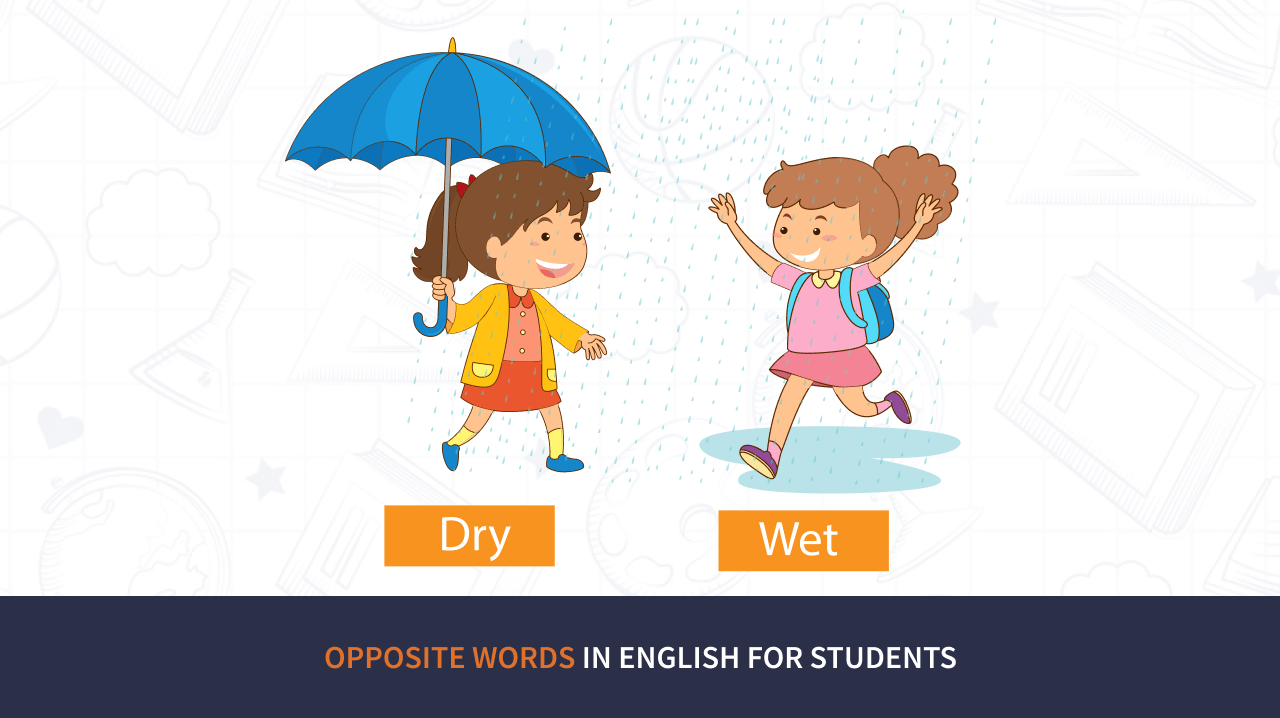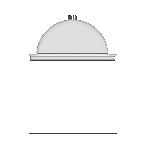Opposite Words In English For Students

Communication is a vital skill that all of us need to succeed in our daily lives, and developing this skill from our childhood days will ensure that we can confidently face academic, personal and professional challenges. English is one such language that has found its way to almost every country in the world, and learning this language has become a part of globalisation. English as a language has many aspects to it, and one important aspect that every student should learn is the concept of antonyms.
Antonyms or opposite words in English are simply the reverse of a word and play an important role in the language developmental skills of the students. Parents and teachers are encouraged to teach their children the concept of opposite words in English in their formative learning years. This is encouraged as the concept is easy for the students to grasp and teach. In this article, we learn 100 opposite words in English, the different ways to remember the opposite words and the benefits of learning antonyms.
100 Opposite Words In English
| Word | Opposite |
| Up | Down |
| Under | Above |
| Inside | Outside |
| Left | Right |
| Light | Dark |
| Stand | Sit |
| Walk | Run |
| Stay | Move |
| Open | Close |
| High | Low |
| Hot | Cold |
| Good | Bad |
| Big | Small |
| Dry | Wet |
| Come | Go |
| Ally | Enemy |
| Friend | Foe |
| Friend | Enemy |
| In Front Of | Behind |
| Full | Empty |
| Kind | Mean |
| Long | Short |
| Deep | Shallow |
| Fast | Slow |
| Thin | Fat |
| Here | There |
| Near | Far |
| Calm | Angry |
| Happy | Sad |
| Awake | Asleep |
| Large | Small |
| Big | Tiny |
| Giant | Dwarf |
| Active | Lazy |
| Yes | No |
| Smart | Dumb |
| Push | Pull |
| Morning | Night |
| Early | Late |
| Give | Take |
| North | South |
| East | West |
| Rough | Smooth |
| Hard | Soft |
| Liquid | Solid |
| Strong | Weak |
| Multiply | Divide |
| Add | Substract |
| Damp | Dry |
| Black | White |
| Forward | Backward |
| Vacant | Occupied |
| Normal | Abnormal |
| Normal | Unique |
| Coarse | Smooth |
| Drop | Catch |
| Dawn | Dusk |
| Beautiful | Ugly |
| Sharp | Blunt |
| Cut | Paste |
| Win | Lose |
| Tight | Loose |
| On | Off |
| Smart | Dull |
| Justice | Injustice |
| Good | Evil |
| Alive | Dead |
| Absent | Present |
| Approval | Rejection |
| Accept | Refuse |
| Old | Young |
| Pretty | Ugly |
| Free | Captive |
| Expensive | Cheap |
| Rich | Poor |
| Married | Single |
| Question | Answer |
| Old | New |
| Remember | Forget |
| Public | Private |
| Wide | Narrow |
| Thick | Thin |
| War | Peace |
| True | False |
| Bitter | Sweet |
| Noise | Quiet |
| Spicy | Sweet |
| Junior | Senior |
| Sick | Healthy |
| Far | Near |
| Loud | Soft |
| Sharp | Blunt |
| Import | Export |
| Foreigner | Native |
| Dirty | Clean |
| Light | Heavy |
| Break | Build |
| Start | Stop |
| Start | End |
| Guest | Host |
Effective Ways To Teach Children Opposite Words
Notably, 90% of children are visual learners, and numerous studies show that visual presentation, when combined with auditory learning, helps learners significantly. Studies have shown that Visual learning techniques improve classroom learning by 400%, and 86% of students become excellent problem solvers when problems are represented in a visual format combined with activity.
Let us now look at three fun activities that can be incorporated to help understand antonyms most effectively.
Match The Picture To Its Opposite Word
This fun activity is easy to create and is a sure way to make the children understand the meaning of opposite words using visual learning. For this activity, make two columns and, in one column, list the words. In the other column, use simple pictures which depict the opposite of the word in the other column. This activity can be fun for developing reading, logic, antonyms, and writing skills. Extra and more complicated words can be added to the mix slowly once the children grasp the basic words and their opposites.
Dumb Charades
Yes! This activity can be used to teach children opposite words in a creative and fun manner. The teachers or parents can make teams within the class and introduce the concept of enacting only the opposite word of any given word. For example, if the given word is ‘ Sit’, the team actor can enact the word ‘ Stand ‘ while their teammates guess the given word. This fun activity can help children think harder and use their communication and logical skills to score points for their team while at the same time expanding their knowledge of antonyms.
Guess The Opposite Of This Word
MIT Gurukul is one of the best primary schools in Pune. It is known for its thorough understanding of various effective teaching methods for specific topics. Schools like MIT Gurukul help students understand concepts like antonyms using fun activities like this guessing game. Teachers can take one picture from a stack of pictures and can ask their students to guess the opposite word of the shown picture! This activity helps students use their skills to derive logical conclusions using their critical thinking and vocabulary skills.
As one of the best international schools in Pune, we believe that education can be fun and not dull. We use various activities to help students learn many concepts, which will positively impact the child’s mind and help them easily recall the concepts at any given time!
Benefits of Learning Opposite Words In English For Kids
English is a vast language that houses a plethora of concepts, and each concept has its own way of enhancing our communication skills. Let us now look at the few benefits of learning opposite words in English.
Improves Vocabulary
Having an array of words in our arsenal is always good; it helps communicate better, irrespective of the situation. Understanding antonyms or opposite words will also help us explore more ways to write and talk to our peers and adapt seamlessly to various scenarios.
Communicate Better
Knowing as many words as possible and their opposite words can significantly enhance our communication skills. Knowing antonyms will also help us diversify our communication skills to a great extent, allowing us to use precise language when needed.
Helps Understand Context
Improving our vocabulary is always a great thing that will stay with us all our life. Knowing and understanding antonyms will help us grasp and understand the context of every conversation better and allow us to contribute better towards the context with ease.
MIT Gurukul is one of the best primary schools in Pune and believes in making education exciting and attractive so that our future generation can become the leaders of tomorrow. Our teachers at MIT Gurukul understand that every student is unique and cater to their requirements for a successful academic journey!

